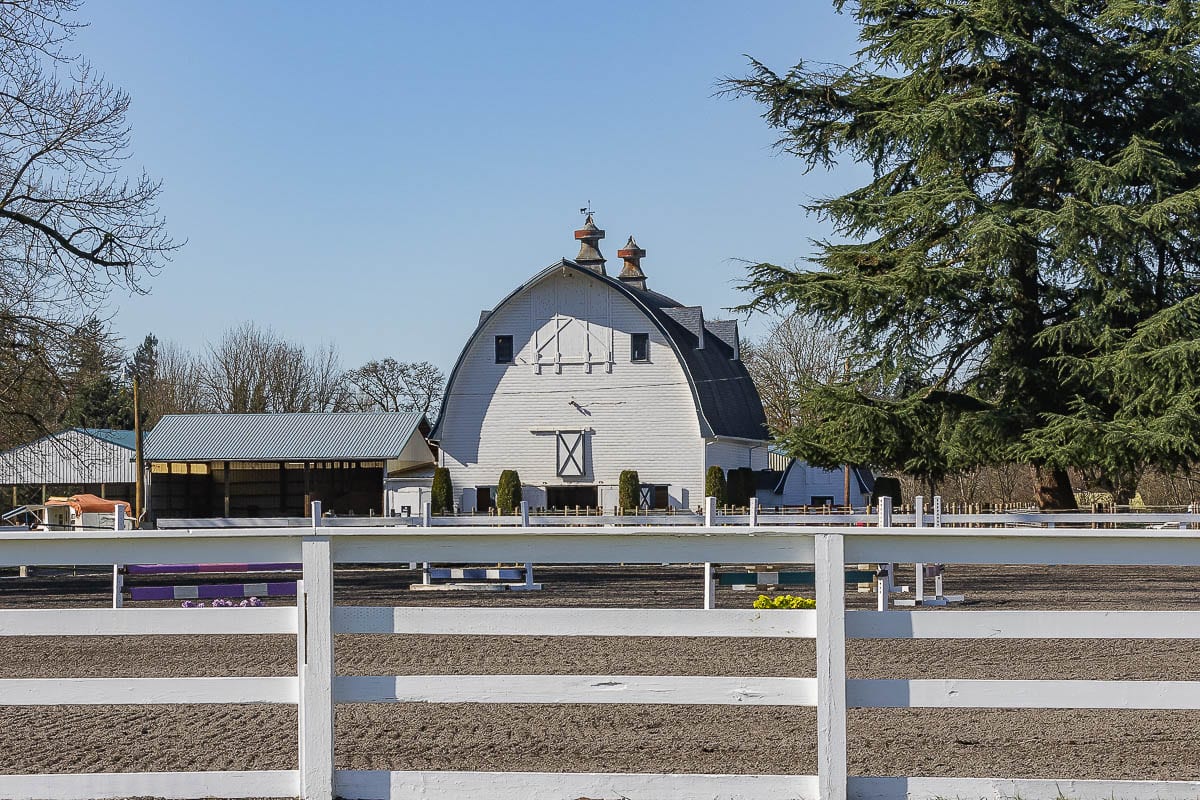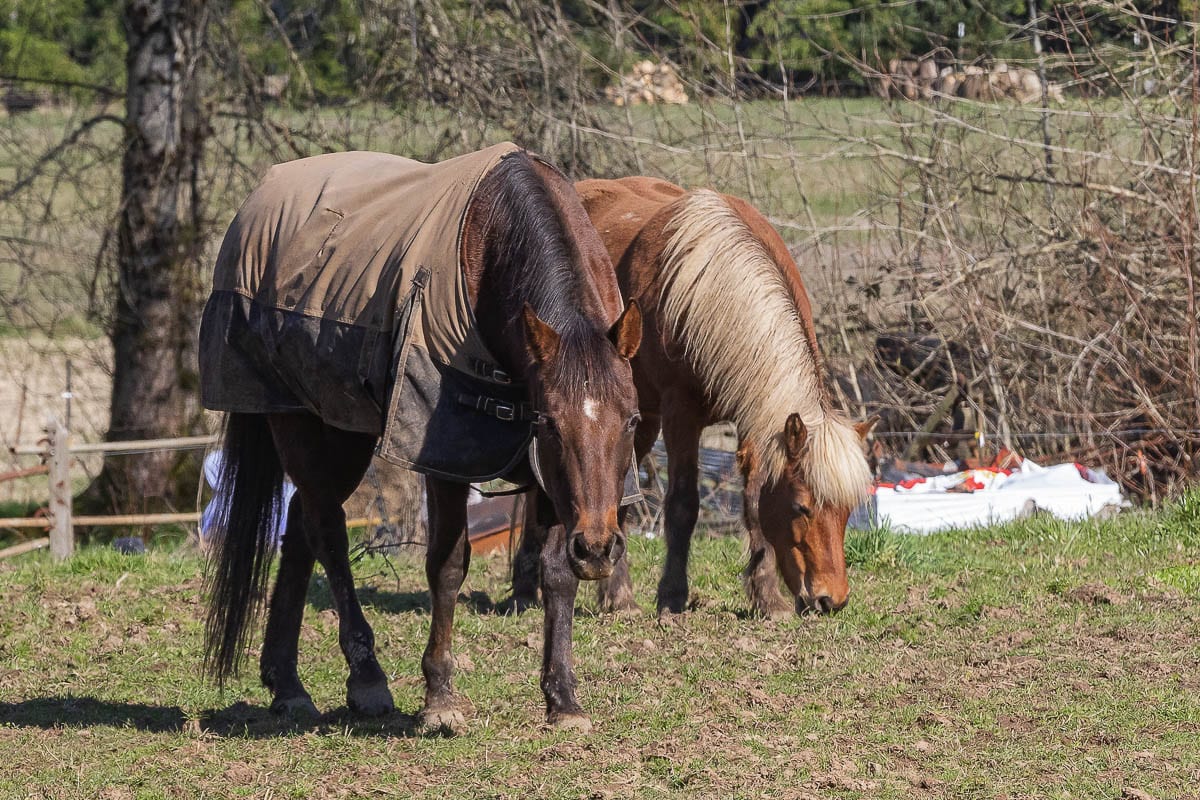The listening session, rescheduled from last March, will be used to inform potential changes to county code for horse boarding or riding businesses
VANCOUVER — After a six month delay due to the COVID-19 pandemic, Clark County Councilors heard from members of the local equestrian community during a virtual listening session Wednesday evening.
Following the hour-long session during which nearly 20 people spoke, Clark County Chair Eileen Quiring O’Brien said the council clearly has “some work to do, or maybe even undo.”

Clark County’s equestrian community showed up in force last February, shortly before the pandemic shut down in-person government meetings, to air their grievances with code enforcement they say unfairly targets them with untenable requirements and costs.
Roger Sturdevant says he and his wife purchased a farm she once boarded her horse at, with the dream of continuing the business.
After spending nearly $3,000 for a pre-application process with the county, Sturdevant says they were given a list of expensive upgrades that needed to be done, including a 6-foot high fence that obscured the business from neighbors, indoor handicapped-accessible restrooms for men and women, a number of parking lot requirements that were never quite clear, and mandates that their barn be soundproofed with a sprinkler system installed.
The cherry on top was an estimated impact fee of $6,600, on top of separate permits for each building on his property.
“I pay my taxes, I have insurance. There’s just no money left at the end of the month,” Sturdevant said Wednesday. “This is my wife’s lifelong dream. We do it for the love of the animals, and the wonderful impact horses have on the community and keeping our youth active, responsible, and involved in keeping the sport of horses alive for future generations.”
The feeling of many in the horse community is that county planners view boarding businesses and riding arenas as an obstacle to future development.
Carol Levanen with Clark County Citizens United says boarding businesses have bought up many of the old dairy farms previously pushed out by over-regulation.
“That didn’t sit well with local planners and some commissioners,” Levanen wrote to Clark County Today. “Their intent was to just have the old farms remain in open space, until a developer bought it to develop.”
Amy Vesneske, who received a letter from code enforcement late last year informing her that her boarding business was operating in violation of the rules, said the lack of clarity has “had a dramatic impact on my life and my quality of life.”
During the meeting in February, Vesneske said it was her conclusion that none of the 120 or so barns in Clark County that currently house horses would likely meet the code as written, yet code enforcement was largely only responding to neighbor complaints.
“I ask that any future code-related issue be addressed with transparency and a clear path out of code enforcement that does not include having to hire an attorney or having to relocate your home,” Vesneske said Wednesday.
Current county councilors and the previous county manager have acknowledged that the code, as it presently is written, is ambiguous, and lacks consistent enforcement guidelines, which creates a frustrating situation for many horse business owners.

Several of the individuals who spoke said they are not against rules entirely, but that the present requirement for a type 2 permit, similar to what a Wal-Mart or Home Depot would need to obtain, is overkill for most of their industry. An industry which, according to some estimates, generates roughly $94 million in economic activity each year for the county.
Two current code requirements the speakers unanimously wanted to see done away with were the need to soundproof barns and have horses inside from 10 p.m. until 7 a.m., as well as the installation of automated sprinkler systems.
“Activating a sprinkler system with horses in a stall or in an open arena would create a disastrous situation that can be more dangerous to the horses and humans than the actual fire,” said Roger Morrison, who runs the nonprofit Windhaven Farm near La Center, which uses horse riding as a form of therapy for military veterans.
Others pointed out that a soundproofed barn could limit an owner’s ability to hear if a horse is in distress, while putting them inside a stall overnight could increase the animal’s level of stress.
“Horses were never meant to be locked up in a box,” said Tracey Kasten Heil. “That presents an undue burden on horse owners. And additionally, it can cause a lot of health issues for horses, such as stress ulcers and colic.”
Scott Ableidinger, whose Twitter bio lists him as a professional pilot and “accidental farmer,” said his interpretation of the code is that the soundproofing requirement shouldn’t be applied to equestrian facilities.
“(The code) applies to animal boarding facilities, but not equestrian facilities,” he told the council. “However, because the terms are contained within the same paragraph of the code, there’s a common misunderstanding that equestrian facilities are expected to comply with this requirement.”
Amy Ableidinger added that further clarification needs to be made to exempt some smaller facilities from the current requirements.
“I ask that it be clarified that private equestrian barns, riding arenas and other equine-related facilities should be allowed to function under an agricultural exemption,” said Ableidinger, a local 4-H leader. “These structures were erected for the housing, training and care of livestock, which is what horses are classified as in Clark County.”
Other suggestions included further defining private versus public businesses, with barns housing fewer than six horses qualifying as a private use.
“This allows the owner the freedom to invite a select number of friends’ horses to stay on the property,” Ableidinger said, “and enjoy the amenities that this owner has worked hard for without penalty.”
Jamie Howsley, an attorney with the law firm Jordan Ramis PC, who is representing a coalition of the local equestrian community, said of the thousands of public meetings he had attended, this one contained perhaps the most cogent exchange of ideas from members of the industry.
“Having been around the county’s land use system basically my whole life, I can attest that this is an issue that the can keeps continually getting kicked down the road,” said Howsley. “But the time has come that we need to address it.”
All of the council members agreed, adding that the suggestions had been helpful.
“We heard very little complaining about the rough road, and there’s been plenty to complain about,” said Councilor John Blom. “It was all very forward looking and talking about how we can make this better.”
“I think we have so much really, really good stuff here to work with as we look at this code,” added Councilor Julie Olson.
Councilor Gary Medvigy, whose district includes much of north county, said he would like to see a working group put together in the future to help with the process.
“I know we have a lot to do,” he added.
County Manager Kathleen Otto said written feedback will be accepted through 5 p.m. Friday, Oct. 16 through either regular mail or email at:
- Clark County, Attn: Code Administration-Equestrian Feedback, PO Box 9810, Vancouver, WA 98666-9810; or
- equestrianfeedback@clark.wa.gov
“The feedback tonight, and the written feedback, will be submitted to the council and staff,” said Otto, promising a transparent process. “They will have future conversations to determine and communicate what the next steps will be.”




